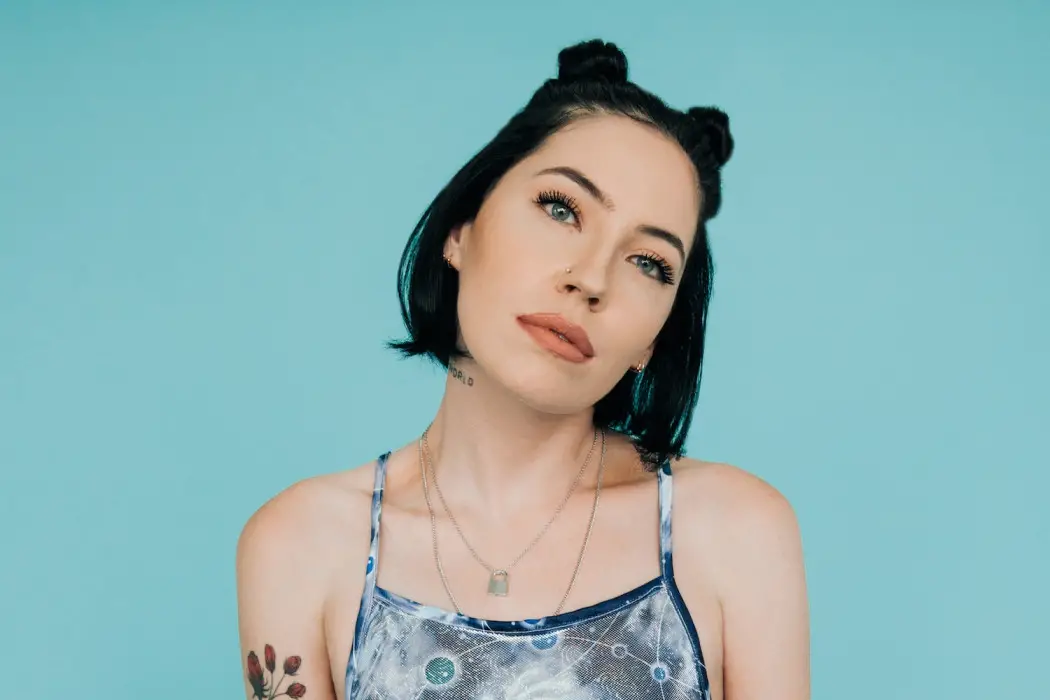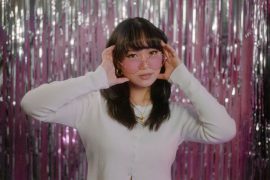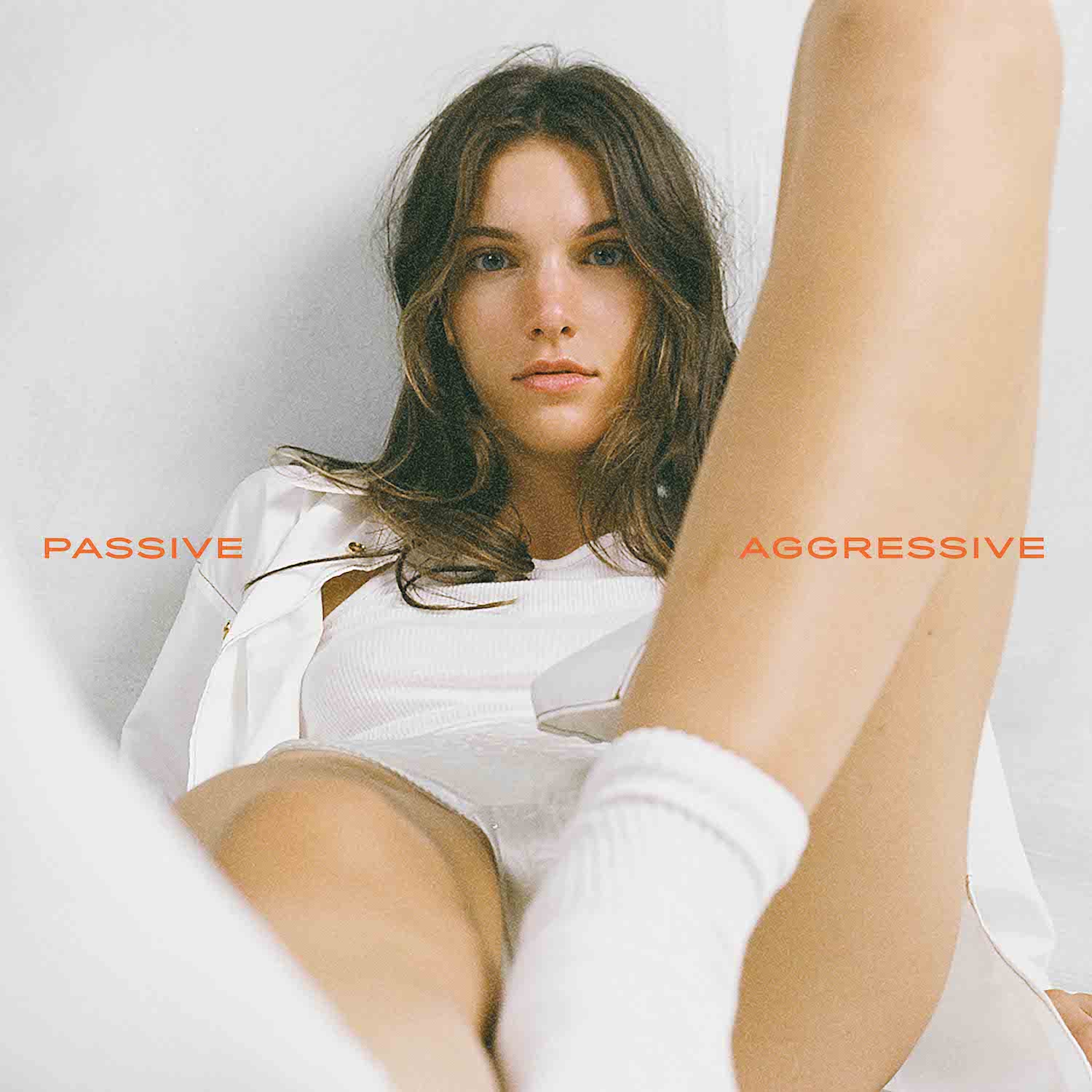Bishop Briggs discusses personal and artistic growth, musical integrity and lyrical vulnerability, her irresistible new anthem “Baby,” and more in our exclusive interview!
— —
Few artists are as vulnerable in their music and as open about it as Bishop Briggs. The soul-trap queen of pop proudly shares her truths through intimate lyrics and intense music, resulting in a powerful listening experience that is as memorable as it is meaningful.
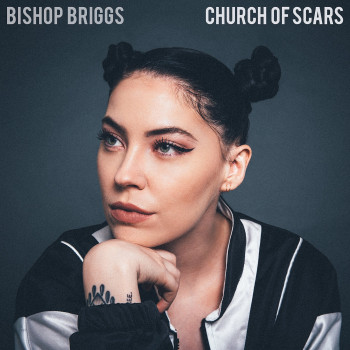
Briggs’ debut single “Wild Horses” and her global smash hit “River” are deeply personal songs that wear their hearts (and more) on their sleeves – a laudable quality that can be found throughout the 26-year-old British-American’s burgeoning repertoire. Briggs’ recently-released debut album Church of Scars (April 2018 via Teleport Records / Island Records) is a true unveiling of the soul, with profoundly raw lyrics like, “Be gentle with me, have patience with me ’cause I’ve been in the corner of my mind that tells me I’m not good enough for anybody like you,” and “Do your dirt, make your mark, my heart is a church of scars that’s hallowed ground,” in the songs “Water” and “Hallowed Ground,” respectively.
“I try my best to be vulnerable in all of my writing,” Briggs recently told Atwood Magazine. Briggs continues to push herself on her brand new anthem, “Baby” (out now). An intoxicatingly catchy singalong, “Baby” is a euphoric love song featuring the artist’s most candid and direct lyrics yet:
He likes zombies, the apocalypse
He’s got some black magic up in those fingertips
Got a gold tooth and a shit car
Always running his mouth
yeah he’s got a few scars
And I love the way that he puts my seat back
Looks at me pulls a joint out his backpack
Aye, ride or die every night every day
My baby’s got a fucked up head
Doesn’t matter cause he’s so damn good in bed
Yeah he’s still my baby
Yeah he’s fucking crazy but he’s still my baby
My baby’s misunderstood
How could something so bad look so damn good
Yeah he’s still my baby
Yeah he’s fucking crazy but he’s still my baby
“The song “Baby” really is about loving yourself, and therefore you can love another person, but it’s the cheekiest song I have ever put out!” Briggs explains. “I really tried to focus as much as I could on visual aspects, so that people could really get a sense of who I was talking about in the song… It’s obviously a very, very close-to-home song, and I wanted to push myself, not only as an artist, but also as a human, and just release something that I would write in my diary.”
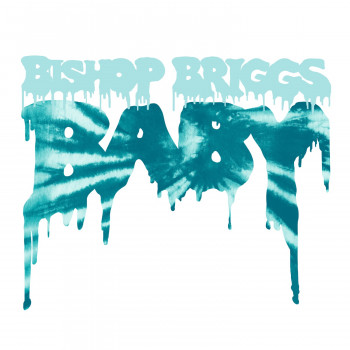
Briggs – who is currently seeing Sir Sly frontman Landon Jacobs – describes her “Baby” through intricate intimate details, professing her love for his through complex character’s strengths and flaws.
Doin’ stupid shit when he drinks too much
But he looks good in leather so I don’t give a fuck
And his Gucci shoes chewin’ juicy fruit
And hes got that sugar, sugar for his sweet tooth
And I love the way that we walk the train tracks
Foggin’ the windows up, on the way back
Aye, aye, aye ride or die every night every day
“Baby” is the next step in Bishop Briggs’ evolution as a self-aware and self-expressive songwriter. Passionate, vulnerable, and utterly irresistible, it’s got all the makings of another memorable and meaningful hit.
There is so much more to Bishop Briggs than meets the eye, and she is committed to sharing every side of herself through her art. Atwood Magazine recently spoke with the rising star about musical vulnerability, her debut album and new material, and how she continues to challenge herself and grow through songwriting. Dive deep into Bishop Briggs’ music and artistry with our exclusive interview, and stream “Baby,” out now!
I wanted to push myself, not only as an artist, but also as a human, and just release something that I would write in my diary.
Listen: “Baby” – Bishop Briggs

A CONVERSATION WITH BISHOP BRIGGS
Atwood Magazine: Hey Bishop! First of all, congratulations on your debut album release: Church of Scars has been out for a few months now, but its music still sounds and feels so fresh. Looking back on the record with the benefit of time, how has your relationship with its songs developed or changed?
Bishop Briggs: Thank you! Oh my gosh. Well, just for the record, I do feel as though every time I sing “River,” I appear to get angrier and angrier – every time I perform it (laughs). As far as the other songs go, the last addition to the album was this song called “Water,” and that really felt like the most transparent that I have ever been. I try my best to be vulnerable in all of my writing, but I think perhaps that being the last addition to the album, it feels closest to home and closest to what’s been happening in my life, currently.
“I sink in you like water, pray you won't pull me under, one look and I die, heaven in your eyes.” These lyrics are pretty transparent, in terms of a relationship that is, to say the least, complicated.
Bishop: Yes! (laughs) I really was hesitant to add the lyrics that are in the bridge, which are:
Be gentle with me
Have patience with me
‘Cause I’ve been in the corner
Of my mind that tells me
I’m not good enough
And I was really afraid to put that in the song. Originally, I just had those lyrics as a placeholder because I didn’t want to really dive into the vulnerability of actually saying that and what that actually means.
But yeah, I think sometimes, when you are treated with respect… Sometimes, that feels more unusual, and that’s really what the song started from. I think I’m going to look back on that song as a really defining moment of my twenties, for sure.
You sing with such confidence and bravado, but under the surface, there is so much going on. I see a connection between “River” and a lot of your songs, especially “Tempt My Trouble.” You’re observing the intricacies your own personal emotions, as they are manipulated by people and things outside your control.
Bishop: Yes, totally. That’s the perfect description.
Lights go out again
You stroke my pain
And tempt my trouble
Sick how we pretend
But we’re not friends
And we’re not lovers
We’re just trouble
We’re just trouble
So tempt my trouble
I keep on messing with your head
You keep on messing up my bed
I feel like we’re two stoners, two loners
Who keep on forgetting everything we said
– “Tempt My Trouble,” Bishop Briggs
So many of these songs go into that. “Do your dirt, make your mark, my heart is a church of scars,” you sing on “Hallowed Ground,” singing the title of your debut. Why is this line so important for you?
Bishop: The minute it was written, I really felt like it perfectly represented how I felt every single time I wrote in my diary; every single time I recorded. It kind of was pouring salt on these wounds, even if I didn’t want to. I think that was really important that, for the title of the album. I definitely got a lot of pushback on the title being that, because it is heavy and it is dark, but I think that’s what feels most true to me, and that’s ultimately why it stuck.
You’ve had a lot of interviews where you talk about authenticity. A lot has been written about you as someone who fits the pop mold, and who puts out big pop anthems that have just gotten stuck in people's heads - but you want people to dive underneath; you really don't want to be looked at as “just a pop artist” – or maybe, want to redefine what that means.
Bishop: Yeah, I think when you have music that people are listening to and hopefully connecting to, I think my only goal is that I, despite being in an environment where I could create, or curate, content, I think my hope is that I am being direct – basically like, not hiding behind that. I think the audience can really tell the difference between that, and I think for me, when it comes to the pop world, my goal is just to be as transparent as I can be, despite having all the tools to not be.
My goal is just to be as transparent as I can be, despite having all the tools to not be.
Repetition can so often create numbness; you can too easily forget what a song means. Earlier you joked about feeling like you get angrier and angrier every time you perform “River,” which is certainly telling in terms of a readiness to move forward. How would you say your relationship with your older songs has changed over time in terms of looking back and being ready to move on? Is it moving on – is that the right word?
Bishop: No, no, and that’s the interesting thing! When I say I get angrier and angrier, it’s not because I’m frustrated. I think it is truly what you’re describing, which is that the songs take new meaning. A song that really started off as facing our demons head-on, has now become a song that’s about not backing down and continuing on, no matter what the obstacle is.
I have heard of people feeling frustrated about performing their older songs, but I kind of feel like maybe they’re in the wrong business then… (laughs) only because as much as I of course what people to connect with music that I’m making now, it is something that is a part of me, and I think that’s why it’s so important with anything that people release, when they’re releasing anything creative into the world, they have to make sure that it’s something that they truly can stand by… because if things go well, you tend to be asked to sing it again. I think because that’s part of the dream, I think it’s something that sometimes should be a little more appreciated.
You know mentioned “Water” has really been sticking with you. In terms of the other non-single album cuts, are there any songs that you really wish people would pay attention to and listen to a little more deeply?
Bishop: Ooh, that’s a good question! I’m really proud of “Lyin’” and “Water.” I think those are two songs in which I took a different writing technique, you could say. I reached a point where I felt as though I was hiding behind my poetry and metaphors – it sounds weird how that can be a thing – but I found that when I was completely direct, that was when it was scariest. That’s kind of what became my goal, especially on the songs that were added in the later part of this album – “Water” and “Lyin’” (which I worked on with Imagine Dragons’ Dan Reynolds)… so when I hear those songs, they have a special place in my heart because I know that I really made an effort to basically say it as it is!
Got me lyin’ lyin’ for your love
Got me lyin’ lyin’ for your love
Am I losing losing myself
When I’m lyin’ lyin’ for your love?
I was in chains, I was in fire
I was in deep, I was a liar
Dyin’ dyin’ for your love
I was insane, I was so blinded
Nothing remains, I didn’t mind it
Lyin’ lyin’ for your love
For your love
– “Lyin’” – Bishop Briggs
You had all the tools to make a bombastic song and you choose to stick to vulnerability in lieu of that! It's interesting you mentioned those two songs, because one of the things I appreciate most about your album is how far you stretch yourself as an artist. You incorporate a plethora of genres throughout ballads, anthems, and pretty much everything in between! What was your mindset, when it came to determining which songs actually made the cut?
Bishop: Oh my gosh, what an insane process that was! It’s very difficult, because I am my own biggest critic, but it also became imperative that the songs on the album had to represent exactly what was happening in my life at that time. I think that’s why artists like Drake always have our attention as audience members and as listeners, because the things he’s talking about in his songs are what’s happening in his life right now. There’s something about that, that I find completely intoxicating as a listener: You feel as though you’re kind of seeing behind the curtain, and seeing what’s actually happening!
I think with the music that I have coming out – I have “Baby” and a few other things that I’m really excited about – they show that there is a lot more to the first album, if you read between the lines, than maybe people even realize, you know? But I think with the second and future albums I hopefully put out, the stories, and moments, and people, and I guess “key,” are revealed as I write more and more.
Speaking of “Baby,” that song leans into trap and electronica so much more than some of your previous songs. Can you talk about its musical inspiration, and where that beat and soundscape came from?
Bishop: Thank you! I actually worked with producer John Hill, whom I love working with… This was another one of those moments where it felt important to just be completely truthful and honest. The song “Baby” really is about loving yourself, and therefore you can love another person, but it’s the cheekiest song I have ever put out! It’s very direct and it definitely is not hiding, and I really tried to focus as much as I could on visual aspects, so that people could really get a sense of who I was talking about in the song… But I’m really happy you say that about the production! I’ll tell him you said that.
“He likes zombies, the apocalypse, he’s got some black magic up in those fingertips.” There is so much imagery just as you start off the song!
Bishop: If you hear the whole song, it really is describing a specific person and kind of going into intimate details about him! It felt like one of those songs that you tell yourself, “Ahh, no one’s going to hear this so I might as well just say it as it is!”
And so now to be talking – like, just as you said that, I literally started blushing and I was like, oh god! I’m going to be so bad at talking about this! But you know, it’s obviously a very, very close-to-home song, and I wanted to push myself, not only as an artist, but also as a human, and just release something that I would write in my diary. It’s not necessarily on the darker side, which feels more foreign to me, and therefore very exciting.
The first time I played it for my parents, I was bright red! (laughs) I couldn’t look them in the eyes over Skype, but I’m sure I’ll get better at that.
I wanted to push myself, not only as an artist, but also as a human, and just release something that I would write in my diary
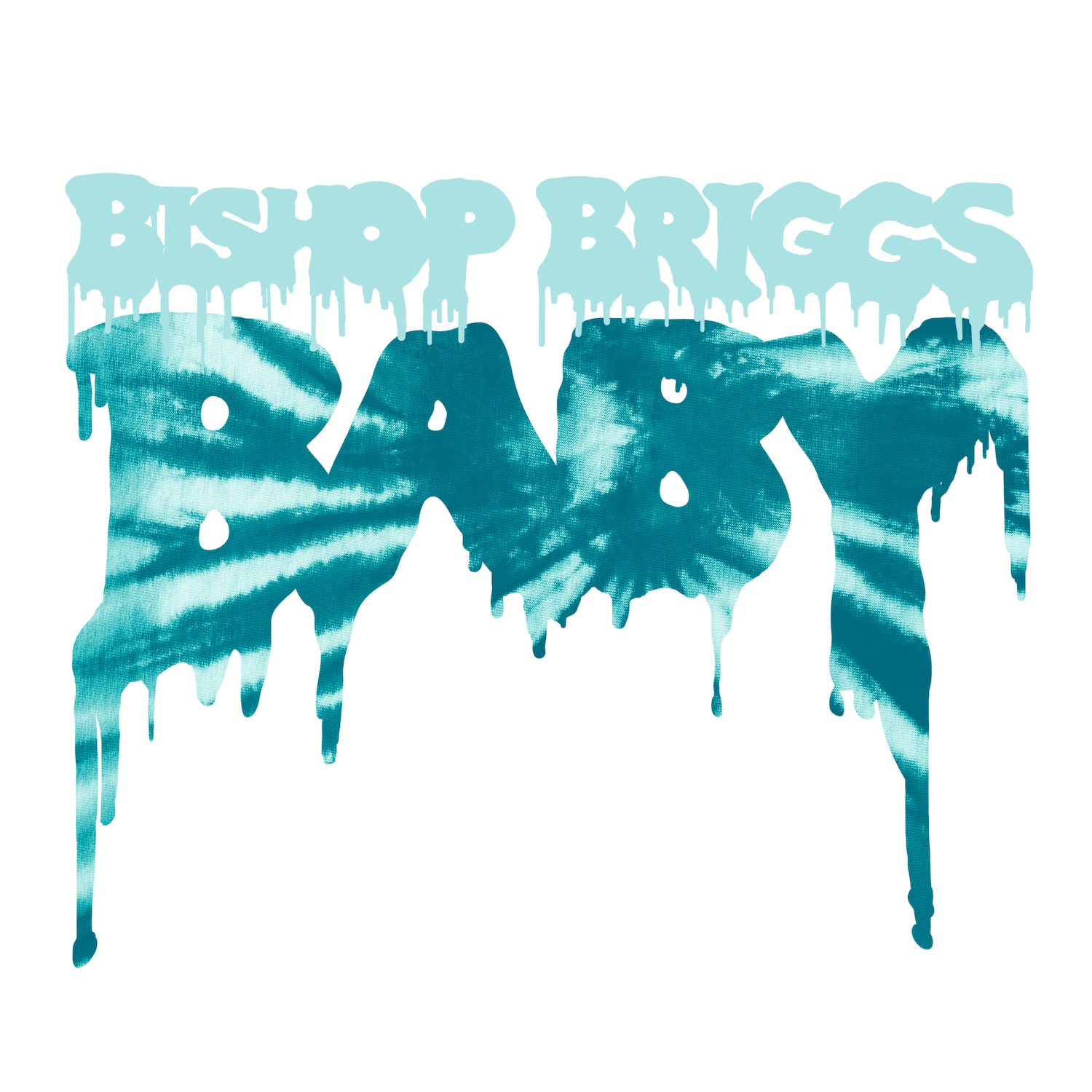
It's so exciting to share something like that about yourself, because we do live in a media-centric world. You are Bishop Briggs, and you’re also @thatgirlbishop. There’s all these different identities that each of us wears. And you do share that part of your world, to at least some extent, with the fans who keep up with you. So you're sharing these details that one would have to take weeks and months of actually getting to know a person, to learn.
Bishop: Yes, totally!
And then, naming the song “Baby.” That’s such a classic name: It's something you call one another; it's something you say and hear adoringly and dotingly.
Bishop: Yes, yes, yes! And that’s what was so important. You know, the person that I’m talking about… It’s extremely light, you know? The whole song is supposed to be taken very playfully, even with the title in itself. I’m so happy that you take it with the grain of sweetness that I was hoping would come across.
I think it's appropriate, because much of your music is so big while the lyrics are so intimate and vulnerable. I like that this song kind of melds those two together, where the music and the lyrics fit in a special way.
Bishop: Yay, I’m so happy to hear you say that, you don’t even know!
I guess it’s sometimes fun to see behind the artist's mystique and really hear the truth come pouring out in a way that sometimes doesn't have that same kind of production glitz and glam.
Bishop: I know it sounds strange, but for me I really do have a comfort zone in writing about darkness. Where I have written in my poetry has always been that dark element and that dark cloud, and I know that can be perceived as vulnerable, but actually talking about happiness feels very vulnerable as well, because you’re so afraid of it going away. I think that’s my instinctual fear, and that’s why it has felt really liberating to be releasing something like this and talking like this – not only as a human, but also as a woman in music.
I know it sounds strange, but for me I really do have a comfort zone in writing about darkness
I think I really appreciate the song as well because it does have that temporal aspect to it. It’s in the moment: It’s right here, right now.
Bishop: Exactly!
But it’s so soon after your album – you’re really coming at it hard here! And I get that, as a major label-signed artist, a lot of your songs were done in 2017, and you have to wait to put stuff out. We know how the game works… but how do you find you’re pushing yourself? You talked about being vulnerable in your music; you talked about how “Water” was a more vulnerable song. What are you doing these days? How are you finding that your music has changed from when you were writing “Wild Horses” and everything else?
Bishop: Well, I definitely have different relationships in my life now. I think that can really make a huge difference in the songs that you’re writing and the things you’re talking about specifically. But I think for me, I kind of felt like I always had an emphasis on authenticity, yet I felt with some of my earlier music, there was still so much symbolism to the point where you were maybe still guessing what I was talking about. Having an air of mystery when you’re in a world where you can do that is of course something people like to do, but I feel as though I’ve done that.
Now, I actually have found so much more strength in sharing my truth. I do find that it allows others to feel more vulnerable and truthful within themselves, where you’re actually just being completely direct. I think that’s when others feel as though they can be direct with themselves, and really look internally and live their truths.
You've also developed a relationship with the stage over the past couple of years. Does the fact that you can see yourself performing these songs in a live context affect the music that you make at all?
Bishop: Well, I do think that when you perform live, you feel really excited to show different sides of yourself. I think it’s always helpful, but I think it’s important that you still really stay in the moment. For me, writing is all about soul and putting pen to paper. So whatever comes out of that, I think, gets left on stage!
I love that! So basically, no.
Bishop: Yes – exactly!
That’s incredible. Now speaking of soul, in a different context… Amongst your music’s most striking qualities is its gospel influence, which you spoke about in our previous interview. This is a quality shared by another all-time favorite band of mine, Sir Sly – are you familiar with them at all?
Bishop: (laughs) Yeah, I believe I’ve heard of them!
I'm curious – and please let me know if I'm going too far in asking this – if you, and any members of the band have ever discussed your relationship with gospel, and why you choose to incorporate it in music today? A lot of music doesn't really have gospel influence anymore.
Bishop: Well I really love Hozier and Alabama Shakes, and I think both of those bands or artists really added that element of layered vocals… there’s something about it that I think is just completely emotion-driven. Every harmony… Yeah, that’s why I originally connected with gospel music from a younger age. With Sir Sly, they also do that in their music as well! One of the song I love so much is “Altar,” and going from the bridge moving forward, I mean… If you think you’re strong, you’re not! Prepare the tissues.
But I think gospel influences, and Sir Sly influences, are very helpful. Also for writing, I find that Sir Sly is very, very inspiring.
https://www.instagram.com/p/BhK7QTGFvDU/?taken-by=sirlandonj
https://www.instagram.com/p/BmOzU-gFO1y/?taken-by=thatgirlbishop
Landon Jacobs is one of my personal favorite artists on this planet. We’ve done a few interviews together… He was one of my first interviews a while back, and he was the kind of person who just opened up like I have not known people to open up! Usually artists are a bit removed; they don't want to tell you their whole life story, and he just… He didn’t stop!
Bishop: Well first of all, that’s because you are amazing. But also, just a follow-up to that, it has been really interesting. In being with him, I have found that I have been so inspired by how transparent he has been. It really has, just to be completely honest with you, it has really pushed me to be like, “Why haven’t I said exactly how I’m feeling?” In comparison, I don’t want to be a robot. I think it’s been really interesting to see how he operates, and really look at myself and think, “Am I really being my truest self? Am I really saying exactly how I feel?” So, it’s interesting – he definitely was a big inspiration for “Baby,” for sure! As you can imagine.
You can say, “I think I'm being transparent.” And then you can realize, “Holy shit! People are doing this, and they’re way more transparent!” And that's what keeps you growing; that's what keeps you growing every day.
Bishop: Yes yes, I totally agree!
This has been so fun, thank you for sticking with me!
Bishop: I feel like my brain has expanded just by talking to you, so thank you so much!
— —
:: stream/purchase “Baby” here ::
— — — —
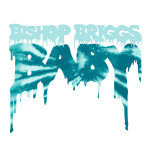
Connect to Bishop Briggs on
Facebook, Twitter, Instagram
Discover new music on Atwood Magazine
? © Jabari Jacobs

